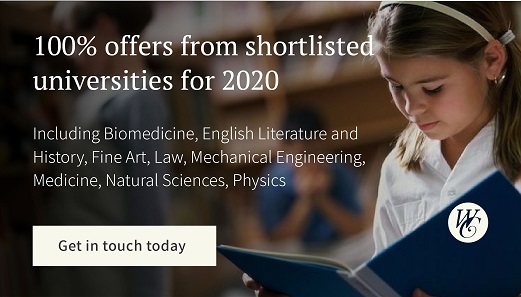

How to win a place studying Medicine at a UK university
In this blog, we explore what to do before starting medical school in order to maximise your chances of winning a place.
It’s unsurprising that getting into medical school is extremely competitive.
Medicine links scientific opportunities with human interaction. It also offers a genuine chance to make a difference to peoples’ lives.
In order to gain a place at a top medical school, it’s necessary to demonstrate exceptional grades in science subjects (especially chemistry and biology), as well as showing evidence of commitment to the profession.
This will mean gaining work experience or volunteering work, perhaps at a local healthcare centre, supporting the homeless or another type of care facility such as an elderly care home.
You must be able to provide evidence that suggests that you are able to demonstrate the skills, knowledge and attributes required to be a successful medic. These include the following:
- Empathy
- Communication
- Leadership
- Ethics
- Teamwork
- Ability to make decisions
- Understanding of the NHS
All of these skills/attributes will need to be highlighted in the student application via UCAS, which will include your Personal Statement.
Furthermore, if successful with your UCAS application, you will be expected to demonstrate these again through the Interview process.
Studying medicine involves five years of study at university, followed by at least two more years of practical experiences and training, which will then kick-start your career.
It’s very important that you understand the realities of being a doctor as well as you can before committing to the course. So, it’s important to make sure that medicine is right for you. Like any big decision you need to consider all the facts and make an informed judgement.
Here’s what to do before starting medical school and completing your application:
1. Decide on the type of career within healthcare that you are interested in
How do I want to be involved? Is it through research, analysis or by providing diagnostics and treatment plans? Ask yourself these essential questions in the first instance.
2. Research the style of learning presented by each of the universities you are planning to apply to
Check each university to see if the course content and teaching reflects your best way of learning and will continue to enhance your passions and interests.
3. Establish what your best skills are, and whether they will be transferable to a career in medicine
For example, do you cope well under pressure, and with stress? Are you empathetic, with a good bedside manner? How do you deal with failure? Can you work well independently, as well as part of a team?
Research the day-to-day routine of a doctor and see if this is what you want, and is it something you are resilient enough to manage.
4. Produce a list of all the available medical school options, and research them fully
This includes finding out about the qualifications you could receive, additional tests and assessments, expectations, the clinical and scientific approaches to courses and so on.
5. Produce a timeline of events and activities that would contribute to a final decision
Discuss this with trusted friends and family, as well as talking to people within the industry. Then, make a clear action plan and follow it from beginning to end.
6. Read our additional resources
For more information on applying to medical school, be sure to read the following resources:
- The Biomedical Admissions Test (BMAT)
- Parents – here's how you can help your children get into medical school
- Medical applications advice for anyone wanting to study at medical school
- Medical School Application Consulting Services
- What you need to know when applying to study medicine
How William Clarence can support you further
Knowing what to do before starting medical school without expert support can be difficult. The William Clarence University Admissions team is therefore on hand to assist with all aspects of your medical school applications.
But don’t just take our word for it; find out how we supported one student to secure three medical school interviews and two subsequent offers, as well as how we helped an aspiring medical student to achieve a place at Imperial College London in our case studies.
If you are looking for similar support, be sure to contact our UCAS Advisors to discuss your options today.


